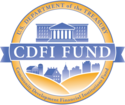How to Improve your Credit
Improving your Credit Can Be Easy! You Just Need to Know Where You Stand
Bad credit can be a big obstacle to a lot of things. It can make it harder for you to rent an apartment or buy a house. It can result in higher insurance premiums. It can affect your ability to get approved for a cellphone contract. It can even affect your employment chances. The good news is that bad credit isn’t a life sentence. If you are asking the “How can I fix my bad credit?” question, you are already on the right track. The hardest part of repairing bad credit, arguably, is making a commitment to do so. Before you can start cleaning up your credit, though, you need to know where to start, and that means finding out where you stand.
Assessing Your Credit
Just how bad is your credit? If you have a lot of credit card debt and have been missing payments or only paying the minimums, there is a good chance your credit rating is low. Before your start doing credit rehabilitation work, though, it’s a good idea to know exactly what your credit score is. That way, you can see what banks, employers, landlords, and credit card companies are seeing when they run your credit check, and start taking steps to reverse the situation.
The good news is that getting a copy of your credit report is not only easy: it’s your federally-protected right. Under the Fair Credit Reporting Act (FCRA), each of the three credit reporting bureaus, Experian, TransUnion, and Equifax, are obligated to provide you with a free copy of your credit report every 12 months should you request it. Even someone with good credit can benefit from exercising this right, as checking credit helps spot signs of identity theft, fraud, and other issues that can affect your financial standing. At Resource One Credit Union, our credit union membership benefits for some types of accounts even include real-time credit monitoring.
Rather than pull your credit report from all three reporting agencies right now, just pick one bureau to start. While your credit report from Experian won’t always be identical to your credit report from Experian, even when you request them at the same time, they will usually be close enough that there isn’t much benefit to getting them all at once. Instead, target just one bureau to start (let’s say TransUnion, for the sake of this conversation) and set reminders to request another credit report from a different bureau in four months’ time. Pulling your credit report every four months will help you monitor it for unexpected changes and will make it considerably easier to gauge your progress as you work toward credit rehabilitation.
Click here to learn more about requesting your credit report.
The Next Steps
Armed with a credit report, you can start taking steps to rectify damage to your credit. These steps might include:
- Having incorrect listings removed: Are there errors in your credit report, or issues that indicate identity theft or other fraudulent activity? While removing these incorrect listings is not always easy, knowing that they are there is the first step to being rid of them.
- Highlight areas of concern: The terms “credit report” and “credit score” are often conflated, but they are not actually synonymous. Your credit score is just one part of your credit report: a numerical rating that indicates your overall “creditworthiness.” Lenders, landlords, and other entities that pull your credit prefer the credit score because it allows for at-a-glance assessment. However, your credit report will also list all your credit accounts or loans (also known as “tradelines”), past-due amounts, payment history, account balances, and accounts that have been turned over to collection agencies. Reviewing this information can be useful to help you highlight the biggest problem areas with your credit.
- Start working on your debt: Speak with a financial advisor about potentially consolidating your debts so that you aren’t paying as many bills (and as many interest rates) each month. Concentrate on paying debts and balances on accounts with the highest interest rates. Negotiate with lenders or their debt collection agencies to repay debts, sometimes for less than you actually owe. Finally, slow your spending. If you can avoid racking up more credit card debt as you clean up your existing tradelines, you will find that you have a faster path back to respectable creditworthiness.
At Resource One Credit Union, we are happy to help you find the tools you need to fix your credit for good. To learn more about our credit union membership benefits, or to get help answering the “How can I fix my bad credit?” question, contact us today.
Sources: https://www.equifax.com/personal/education/credit/report/what-is-a-credit-report-and-what-does-it-include/





